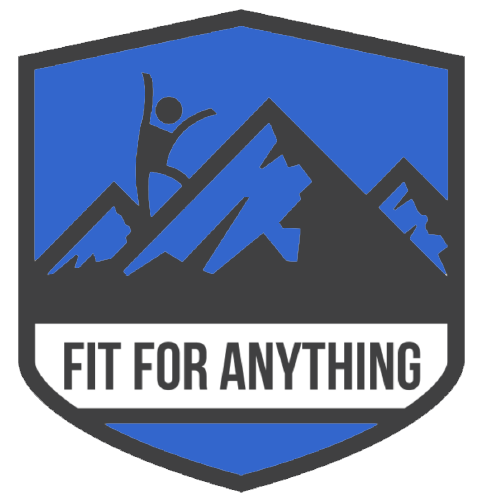Obstacle races are a big feature on the sporting event calendar for 2020. Their popularity is due to the diversity of the physical challenge, with many different activities in one race. Total fitness is required, cardiovascular fitness, strength, agility, flexibility, specific techniques to conquer tough obstacles, the ability to adapt to varying conditions and mental attributes too. Courses are generally set to challenge you in every way! Being a well-rounded athlete will absolutely help performance and will determine how much fun you have!
Try to make it a point to diversify your training and focus on a few key areas, such as endurance, strength, and athleticism, so that you are well prepared for whatever is in store. Team FFA train weekly to prepare for these types of events or just to improve your all-round fitness. Check out the details of our training sessions here.
1. Getting Real
It is important to try to identify your strengths and weaknesses and then compare them to the requirements of your upcoming event in order to train effectively. Consider:
What kind of obstacle race are you planning to complete?
Is it a short race or a long one?
Can you already run the distance? How easily?
Do you have decent upper body strength?
How would you rate your overall agility and your ability to traverse obstacles?
2. Prepare to Plan or Plan to Fail
If you’re an active runner, athlete, or train regularly, then give yourself at least 6 to 8 weeks to prepare for an obstacle race. If you’re new to running or fitness, you may want to devote at least 12 to 16 weeks. You will need to plan your fitness, nutrition and your race day strategy. Check out the FFA Blog on the preparations for the 2019 World Championships for a little fitspiration!
Preparing For Endurance Events
3. Train with like-minded people
Training with others can provide support, guidance by sharing health and fitness knowledge and by working out together as a team. Team FFA recognises that everyone - no matter what limits they think they have - has the potential to push themselves to achieve things they never thought possible. Your goals become our goals! With hard work and a supportive team behind one another, together we are stronger and anyone can be(come) Fit for Anything!
4. Run a Lot
This is probably the most important bit of conditioning. Regardless of your event, make sure you allow plenty of time to build your endurance with long runs and high weekly mileage. If your event is about three miles long, make sure that you can easily cover the distance. It would be helpful to build your long run to at least six miles. Of course, be smart and don’t rush the process. Build your mileage gradually. But run. There’s a reason the best obstacle racers are runners!
5. Total Body Strength is Your Friend
You’ll be able to navigate the obstacles much more easily if you’ve got a decent foundation of strength. You don’t need to be a strongman, but being able to complete some body-weight exercises with relative ease will really help you.
At a minimum, work up to doing at least a few pull-ups, 30 push-ups, 30 to 50 body-weight squats, and being able to hold an elbow plank for one minute or longer. This general strength will help you pull yourself over walls, climb the monkey bars, run up steep hills, and leap over obstacles. Basic weightlifting exercises, including squats, deadlifts, and weighted carries, would definitely be helpful, too.
6. Build Your Athleticism
A good foundation of strength and endurance is a great start and will put you above most of the other racers. Completing some drills to enhance your agility, coordination, and overall athleticism will certainly give you the edge.
Consider mobility drills, dynamic stretches, and flexibility exercises to make sure you have a full range of motion in all of your joints. You could incorporate some jumping and crawling practice into some of your training, whether it’s during runs or strength workouts. It’s ideal to find a place to practice climbing, such as a local playground.
7. Practice Makes Perfect
This is where you put it all together into a more race-specific training program. The closer you can model the training to the physical demands of the actual event, the more prepared you’ll be for the race.
Consider some of these ideas for your program.
Do as much running on trails as possible, to simulate the terrain of an obstacle race (which will include mud, rocks, roots, etc.)
Run hills, which will build endurance and strength
Do some intense workouts that will require you to change gears and run at different speeds
Wear your race gear to ensure it fits properly and will keep you at the right body temperature for the conditions. We recommend Legendborne for the ultimate style and comfort.
When you get to the starting line you will know if you’re prepared or not. Do everything you can to succeed before the race in order to have fun on the day and remember we are always here to help!


